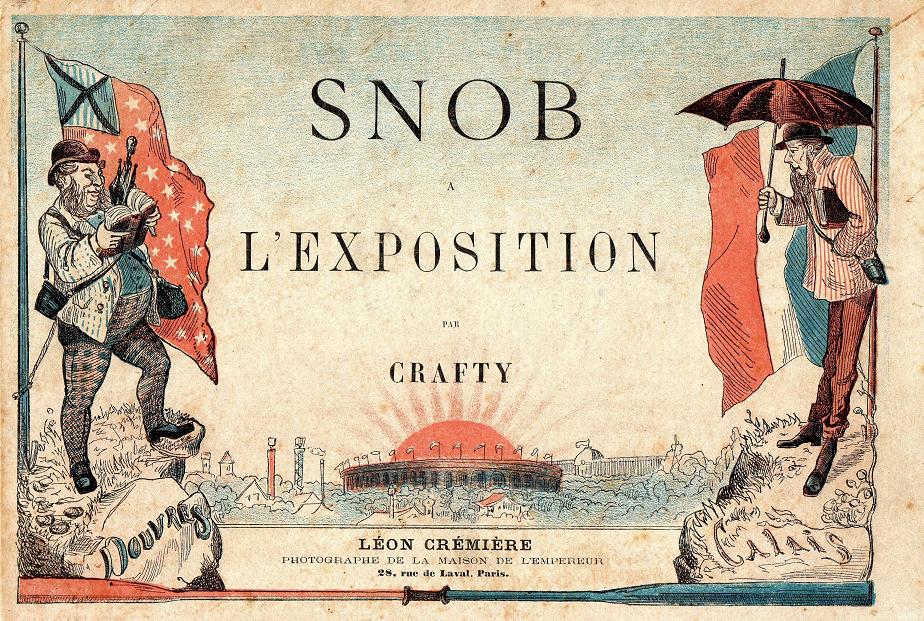The term “snob” originally referred to a shoemaker or a shoemaker’s apprentice in the 18th century. By the early 19th century, it had evolved to mean someone who seeks to imitate or associate with those of higher social status. The modern usage of “snob” emerged to describe individuals who exhibit disdain or contempt for people they consider inferior in terms of social status, intellect, taste, or other attributes.
New York, N.Y. The Guardian in London recently posed the question: Why are we so snobby about other people’s weddings? Let us take a deep dive into the meaning of snobbery today going back until the 1800’s.
Snobbery is an attitude or behavior that involves looking down on others perceived to be of a lower social status, education level, taste, or background. It is characterized by a sense of superiority and condescension towards those considered less worthy or sophisticated. Snobbery can manifest in various contexts, including social interactions, cultural preferences, and professional environments, and it often perpetuates divisions and inequalities within society.

Snobbery can take many forms
- Social Snobbery: Judging people based on their social class, wealth, or connections. This often involves excluding or looking down on those who do not belong to certain social circles or who do not possess particular status symbols.
- Cultural Snobbery: Believing that certain cultural tastes (such as preferences for particular types of art, music, literature, or cuisine) are superior to others. Cultural snobs often dismiss or ridicule popular or mainstream culture.
- Intellectual Snobbery: Valuing individuals based on their educational background, intelligence, or intellectual achievements. This can lead to belittling those who lack formal education or who do not engage in intellectual pursuits.
- Professional Snobbery: Judging others based on their occupation, professional success, or workplace status. Professional snobs may look down on those in lower-paying or less prestigious jobs.
Snobbery can have several negative impacts on individuals and society
- Social Exclusion: Snobbery fosters environments where people are excluded or marginalized based on arbitrary criteria, leading to social fragmentation and inequality.
- Hindrance to Inclusivity: It creates barriers to inclusivity and mutual respect, preventing meaningful interactions and collaborations across different social and cultural backgrounds.
- Psychological Effects: Being subjected to snobbery can harm an individual’s self-esteem and sense of belonging, contributing to feelings of inadequacy and social anxiety.
- Cultural Homogeneity: Cultural snobbery can stifle diversity and creativity by promoting narrow standards of what is considered culturally valuable or sophisticated.
Efforts to combat snobbery involve promoting inclusivity, empathy, and respect for diversity
- Education: Encouraging education systems to foster understanding and appreciation of diverse social, cultural, and intellectual contributions.
- Dialogue: Promoting open and respectful dialogue between individuals from different backgrounds to break down stereotypes and prejudices.
- Leadership: Encouraging leaders in various sectors to model inclusive behavior and create environments where all individuals feel valued and respected.
- Media Representation: Advocating for balanced and diverse representation in media to challenge elitist narratives and celebrate a wider range of experiences and perspectives.
Historical and Cultural Context
Throughout history, snobbery has been both a source of satire and criticism. Writers such as Jane Austen and Charles Dickens often explored themes of snobbery in their works, highlighting the absurdity and harm of such attitudes. In contemporary culture, snobbery continues to be a relevant topic, with ongoing debates about class, taste, and social mobility.
Notable Quotes
- “A snob is one who craves for what separates men rather than for what unites them.” – John Buchan
- “Snobbery is the pride of those who are not sure of their position.” – Berton Braley
Snobbery, in its various forms, undermines social harmony and perpetuates inequalities. By recognizing and challenging snobbish attitudes, individuals and societies can work towards a more inclusive and respectful world where diversity is celebrated, and everyone is valued for their unique contributions.
#Snobbery #SocialClass #CulturalDiversity #Inclusivity #Empathy #SocialEquality
TAGS: snobbery, social exclusion, cultural snobbery, intellectual snobbery, professional snobbery, inclusivity, empathy, social equality, education, dialogue.



